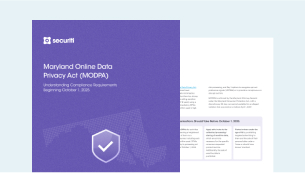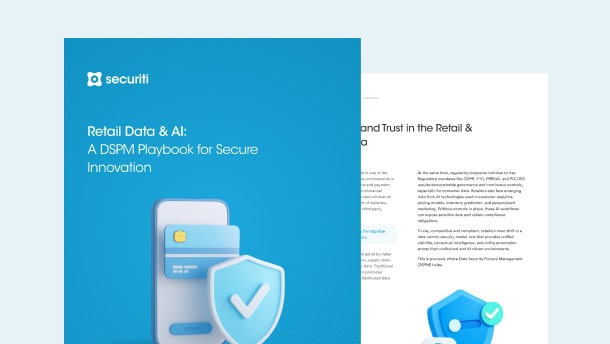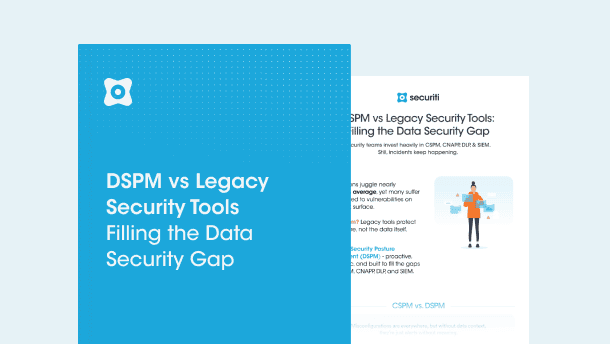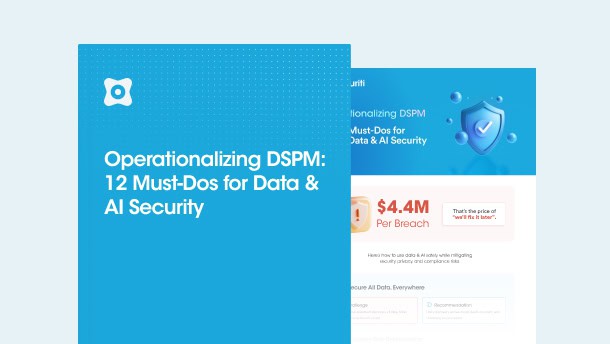Oman passed Royal Decree 6/2022 promulgating the Personal Data Protection Law (PDPL) on 9 February 2022. When it comes into effect on 9 February 2023, the PDPL will repeal and replace Chapter Seven of the Electronic Transactions Law.
Oman's Personal Data Protection Law (PDPL) shares many similarities with global data protection laws but offers unique perspectives on data privacy. These have been further supplemented by the Executive Regulation of the Personal Data Protection Law (PDPL), which was issued on 4 February 2024 in Oman.
The Ministry of Transport, Communication, and Information Technology (MTCIT) is the regulatory authority responsible for enforcing the provisions of PDPL as designated by Article 7 of the PDPL. It is important to understand key aspects of the new law for organizations operating in Oman or serving Omani users.
1. Who Needs to Comply with the PDPL
a. Material Scope
The PDPL will be applicable to any and all processing that involves personal data. Per the PDPL’s definition, personal data refers to any data that leads to an individual becoming identifiable, such as the following:
- Name;
- Electronic identifiers;
- Civil Identification Number;
- Genetic Information;
- Information related to physical, mental, psychological, social, cultural, or economic identity.
However, it is important to note that the processing of personal data concerning genetic, biometric, health, ethnic origin, sexuality, political or religious views, criminal records, or security measures is forbidden unless permitted by the MTCIT. The Executive Regulation of PDPL now outlines application requirements to obtain permits for processing sensitive data and sets a 45-day decision period for the MTCIT.
b. Territorial Scope
The PDPL and the Regulations do not specify its territorial scope.
c. Exceptions
According to Article 3 of the PDPL, the provisions of the PDPL will not apply in the following cases:
- Information related to matters of national security interests;
- Information related to the economic and financial interests of the state;
- Data related to vital interests of the country's internal affairs;
- Data related to vital interests of the data subject to whom personal data relates;
- Data formally requested by the investigation entities for the detection or prevention of crime;
- Data related to the execution of a contract to which the data owner is a party;
- Data that is processed within the personal or family context;
- Data used for the purposes of historical, statistical, scientific, literary, or economic research by authorized authorities, that does not attribute to an identified natural person;
- Data available to the public, and is not in violation of the provisions of this law.
2. Obligations for Organizations Under the PDPL
Like other data protection laws across the globe, Oman's PDPL places several obligations on organizations processing and collecting data of data owners.
a) Consent Requirements
- As per Article 10, all personal data should only be processed transparently, honestly, and via express written consent from the data owner.
- Processing a child's personal data is prohibited without guardian consent, except when necessary for the child's best interests.
- As per Article 21, a data controller must obtain the data owner's consent before publishing their data in any form. The Regulations clarify that consent must be "explicit" and must be given by a person who holds full capacity and without coercion.
- As per Article 22, the data controller is required to obtain written consent from the personal data owner before sending them any advertising or marketing material for commercial purposes.
b) Privacy Notice Requirements
As per Article 14 of the PDPL, the data controller must notify the owner of the personal data in writing before beginning the processing of any personal data. The data owner must be informed about the controller and processor, the contact details of the Data Protection Officer (DPO), the purpose and description of the data processing procedure, and the rights available to the data subject.
c) Security Requirements
As per Article 16 of this law, all organizations collecting data on Omani residents are required to hire an external auditor approved by the MTCIT to evaluate their data protection mechanisms.
d) Data Breach Requirements
Article 19 states that the data controller is obligated to inform the MTCIT and the owner of personal data about a breach of personal data that leads to its destruction, alteration, disclosure, access, or unlawful processing.
e) Data Protection Officer Requirement
Controllers are required to hire a data protection officer (DPO) in line with the requirements laid down by Article 19 of this law. Additionally, Article 35 of the Executive Regulation of PDPL details the obligations of DPO. It includes advising on legal obligations, ensuring the implementation of data protection policies, monitoring compliance with laws and regulations, and coordinating with relevant departments regarding personal data processing matters. A DPO should be eligible to carry out these responsibilities.
f) Cross-Border Data Transfer Requirements
Under Article 23, any organization can transfer data collected within Oman outside the country if it follows the control and procedures outlined by the Regulations. Such transfers are prohibited if there is a chance that the transfer of such data may cause harm to a data subject or if the personal data is processed in violation of the provisions of the PDPL. The Executive Regulation of PDPL places the responsibility on controllers to determine whether an adequate level of protection exists where personal data is being exported out of Oman. It mandates the controller to obtain the express consent of the data subject and ensure that the transfer of personal data does not result in a violation of national security or state interests.
3. Data Subject Rights
Oman's PDPL affords personal data owners within the country several data subject rights similar to other data protection laws globally. Data subjects, referred to as “owners of personal data,” have the following rights per the PDPL:
Right to Withdraw Consent
The data subject has the right to revoke consent to the processing of their personal data.
Right to Request Modification to Data Collected
The data subject has the right to request modification, updating, or withholding of data collected by an organization if it's incomplete or outdated.
Right to Data Portability
A data subject has the right to request a copy of their personal data collected by an organization to be transferred to another controller.
Right to Erasure
A data subject has the right to request the erasure and removal of their personal data collected by an organization.
Right to Be Notified
A data subject has the right to be notified of any data breaches or changes to the organization's data collection and storage methods. Consequently, in case of a data breach, the organization is legally obligated to inform the affected data owners.
The Executive Regulation of PDPL now mandates controllers to respond to Data Subject Rights requests within 45 days. Furthermore, it allows controllers to refuse requests if they are deemed vexatious or require extraordinary effort.
4. Regulatory authority
The law does not establish a new regulatory body for data protection. However, as mentioned earlier, the MTCIT has been tasked with taking this responsibility from the Electronic Defense Center, which was the primary body responsible for handling issues related to data protection in the country prior to the promulgation of PDPL.
MTCIT is responsible for preparing and approving the controls and procedures related to personal data protection, including determining the necessary safeguards, measures, and rules of conduct.
Moreover, the data subject will be able to contact MTCIT directly related to any data privacy issues.
5. Penalties for Non-compliance
Article 25-Article 32 states the following penalties in case of specific violations:
- If an organization fails to inform the data subjects before collecting their data properly, it can be punished with a fine of no less than (500) five hundred riyals and not more than (2,000) two thousand riyals per offense.
- If an organization fails to comply with Articles 15 -18, 20, and 22 of the PDPL, it can be punished with a fine of not less than (1,000) one thousand riyals and not more than (5,000) five thousand riyals per offense.
- If an organization fails to process sensitive personal data or children's data in accordance with PDPL, fails to respond to a breach incident, or fails to appoint a DPO in accordance with PDPL, it can be punished with a fine of not less than (15,000) fifteen thousand riyals and not more than (20,000) twenty thousand riyals per offense.
- In case an organization transfers data outside the Sultanate of Oman, resulting in any sort of damage to the personal data's owner, they can be punished with a fine of not less than (100,000) one hundred thousand riyals and not more than (500,000) five hundred thousand riyals per offense.
6. How Can an Organization Operationalize the PDPL
Complying with various data protection laws can often be a hassle. However, a sound starting foundation proves incredibly helpful. Here are some steps related to how organizations can comply with Oman's PDPL:
- Ensure all the company's employees and staff are acutely aware of their responsibilities under the PDPL.
- Organize regular data protection mechanism assessments through an external auditor as well as data mapping exercises to ensure maximum efficiency in your compliance efforts.
- Notify the relevant authorities of a data breach as soon as possible.
- Restrict the use of marketing and advertising material sent online to only those data subjects who can explicitly request such material.
7. How Securiti Can Help
With most countries already having drafted their data protection laws or in the process of doing so, it has become more important than ever for organizations to make data compliance a strategic goal. Not only is there now legal pressure to do so, but the users themselves have become educated and informed about their rights to privacy.
Compliance with different data protection laws worldwide is easier said than done since each law has its provisions and would require businesses to tweak their data collection practices radically in cases. In such circumstances, AI-driven solutions are the best way forward as they allow the business to merge effectiveness with efficiency.
Securiti is a global leader in data compliance and governance solutions, thanks to its PrivacyOps framework, which can help any business achieve compliance at the click of a single button.
Request a demo today to see how Securiti's tools can help you.












































